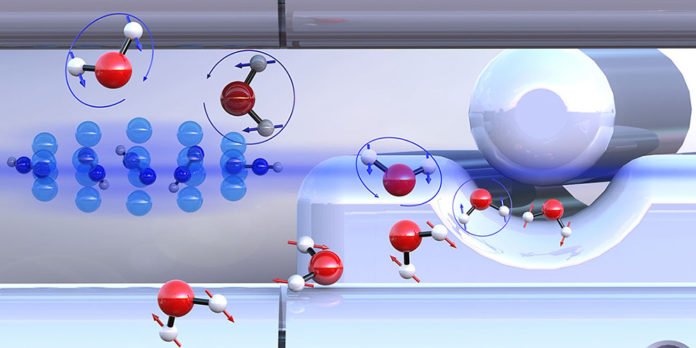Water exists in 2 different forms with similar physical properties. Now for the first time, scientists at the University of Basel succeed in separating the two forms to show that they can exhibit different chemical reactivities.
Water has 2 hydrogen molecules and 1 oxygen molecule. It exists in 2 different forms at the molecular level. The difference lies in the relative orientation of the nuclear spins of the two hydrogen atoms.
Scientists investigated how the two forms of water differ in terms of their chemical reactivity. They tested their ability to experience a synthetic response. The two isomers have relatively indistinguishable physical properties which make their division especially difficult.
For the separation, scientists used a method based on electric fields to initiate controlled reactions between the “pre-sorted” water isomers and ultracold diazenylium ions (“protonated nitrogen”) held in a trap. During this process, a diazenylium ion transfers its proton to a water molecule. This reaction is also observed in the chemistry of interstellar space.
It was shown that para-water responds around 25% speedier than ortho-water. This impact can be clarified regarding the nuclear spin also affecting the revolution of the water molecules. As a result, different attractive forces act between the reaction partners. Para-water is able to attract its reaction partner more strongly than the ortho-form, which leads to an increased chemical reactivity. Computer simulations confirmed these experimental findings.
In their investigations, the specialists worked with particles at low temperatures close to an absolute zero point (about – 273°C). These are ideal conditions to precisely prepare individual quantum states and characterize the vitality substance of the molecules, and to cause a controlled response between them.
Professor Stefan Willitsch from the University of Basel’s Department of Chemistry said, “The better one can control the states of the molecules involved in a chemical reaction, the better the underlying mechanisms and dynamics of a reaction can be investigated and understood.”
These results were reported by researchers from the University of Basel and their colleagues in Hamburg in the scientific journal Nature Communications.
